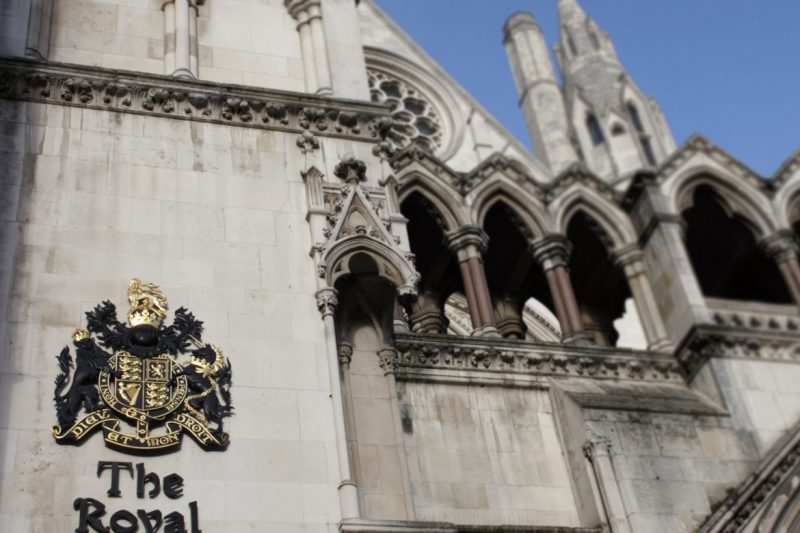Charles Edwards, Barrister and TECBAR Adjudicator reviews a decision of the Supreme Court which raises important issues about the effect of Adjudicators’ decisions pursuant to the provisions implied into construction contracts under section 108(5) of the Housing Grants, Construction and Regeneration Act 1996 and the Scheme for Construction Contracts (England and Wales) Regulations 1998 (SI 1998 No 649) (“Scheme for Construction Contracts”). The judgment of the Supreme Court in 2015 (Aspect Contracts (Asbestos) Ltd v Higgins Construction Plc [2015] UKSC 38) upholds the judgment of the Court of Appeal in 2013 (Aspect Contracts (Asbestos) Ltd v Higgins Construction Plc [2013] EWCA Civ 1541) which reversed the judgment of the High Court in 2013 (Aspect Contracts (Asbestos) Ltd v Higgins Construction Plc [2013] EWHC 1322 (TCC)).
The Respondent, Aspect Contracts (Asbestos) Ltd (“Aspect”) and the Appellant, Higgins Construction Plc (“Higgins”) entered into an agreement for Aspect to conduct an asbestos survey of Ivybridge Estate in Hounslow. Following the conduct of the surveys, Higgins then entered into an agreement with the Notting Hill Housing Trust for the demolition and redevelopment of the Ivybridge Estate and also entered into a sub-contract with Falcon Refurbishment and Demolition Ltd for asbestos removal and demolition works. Higgins submitted that there was more asbestos containing material than Aspect had discovered and as a consequence, Falcon its subcontractor had to be paid more than original agreed. This led to a dispute between the parties. According to Higgins this caused 17 weeks of critical delay by 27 September 2005. The parties attempted negotiation and mediation which failed; following which Higgins served a notice referring the dispute between the parties to Adjudication claiming £822,482.00 damages plus interest. On 28 July 2009, the Adjudicator decided that Aspect had been in breach of duty and ordered Aspect to pay Higgins the sum of £490,627.00 plus interest in the sum of £166,421.05. On 6 August 2009, Aspect paid Higgins £658,017.00 which included further interest which had accrued since the date of the Adjudicator’s decision. Higgins did not commence any proceedings thereafter whether to recover the balance of its claim (in the sum of £331,855 plus interest) or otherwise. The limitation period expired on or about 27 April 2010 for Higgins to commence any action based on a breach of contract and at the latest by early 2011 for Higgins to commence any action based on tort (Limitation Act 1980, sections 2 and 5).
However, on 3 February 2012, following the expiry of the limitation periods stated above with regard to Higgins commencing any action founded on breach of contract or tort, Aspect began proceedings to recover the sum paid to Higgins which was more than 6 years beyond the alleged breach of contract or duty in 2004 but less than 6 years after it had made payment to Higgins. Aspect’s claim was based on an implied term, alternatively in restitution. The implied term which Aspect’s claim was based on was follows:
“in the event that a dispute between the parties was referred to adjudication pursuant to the Scheme and one party paid money to the other in compliance with the adjudicator’s decision made pursuant to the Scheme, that party remained entitled to have the decision finally determined by legal proceedings and, if or to the extent that the dispute was finally determined in its favour, to have that money repaid to it.”
The Supreme Court set out by way of background that the Court (TCC) at first instance ordered the trial of preliminary issues as to:
“…(a) the existence of the implied term, (b) the limitation period applicable to any such implied term, (c) the limitation period applicable to the counterclaim, and (d) the existence or otherwise of a claim for restitution. By a clear and comprehensive judgment dated 23 May 2013, he held that there was no such implied term as alleged, that Aspect could have claimed a declaration of non-liability at any time within six years after performance of the contract, upon the grant of which declaration the court would then have had ancillary and consequential power to order repayment, but that any such claim was now time-barred. He also held that there was, in these circumstances and in the absence of any recognised basis like mistake or duress and of any right to have the adjudicator’s decision set aside, no claim in restitution…”.
The Court of Appeal succinctly summarised the question to be addressed as follows:
“…the question that has arisen in this case is whether a claim by the losing party to the adjudication for repayment of sums paid over to the successful party is subject to a time bar accruing at the time of the (supposed) original breach of contract or duty or only from the date of the (supposedly) unnecessary payment made as a result of the adjudication. It may be noted at once that this is a somewhat one-sided question. If the successful party in the adjudication wishes to sue for the amount adjudicated in his favour he sues on the adjudication and his cause of action accrues at that time; if he wishes to sue for more than the amount adjudicated, he will be subject to the ordinary rules relating to the accrual of his original cause of action (namely 6 years from the breach of contract or duty, as the case maybe). The unsuccessful party is in a different position. He has no readily discernible cause of action at the time of his supposed breach of contract or duty, unless it be for a declaration that he is not liable. But his main wish is to sue for the return of money which he contends was never due in the first place. To the extent that he has a cause of action for the return of the money, a natural reaction might be that the cause of action accrued at the time he made the (assumedly unnecessary) payment…”.
The Court of Appeal overturned the High Court’s judgment and reached an opposite conclusion, holding that the Scheme for Construction Contracts (England and Wales) Regulations 1998 (SI 1998 No 649) implied that any overpayment could be recovered. The Court of Appeal stated that Higgins’s contrary case faced a number of difficult questions, such as, first, the fairness of a conclusion that required any claim for repayment to be made within six years of the original contractual performance, second, the juridical basis for a conclusion that a declaration of non-liability would carry with it a right to order repayment and, third, the correctness of the judge’s conclusion that a declaration of non-liability was liable to be time-barred.
Permission by the Supreme Court to appeal the judgment of the Court of Appeal informed the parties that:
“…without prejudging whether it would be open to [Aspect] to raise any positive point on restitution, the Supreme Court may wish as part of the context to have explained the legal position regarding restitution…”
The Supreme Court reviewed the relevant legislation applicable in the appeal which included:
“…The legislation
- Section 108 of the Housing Grants, Construction and Regeneration Act 1996 (in its original form, as in force before its presently immaterial amendment by the Local Democracy, Economic Development and Construction Act 2009) provides:
- Section 114 provides that:
- The Scheme contained in the Schedule to the Regulations is in parallel terms to those indicated in section 108(1) to (4), with slight differences which no-one suggests are significant. It provides:
- The adjudication provisions implied by the Housing Grants, Construction and Regeneration Act 1996 and the Scheme for Construction Contracts (England and Wales) Regulations 1998 (SI 1998 No 649) into the construction contract entitled the unsuccessful party in adjudication to seek a final determination by litigation and, if successful, recover any payment made.
- Paragraph 23(3) of the Scheme for Construction Contracts (England and Wales) Regulations 1998 (SI 1998 No 649) made the adjudicator’s decision binding until the dispute was finally determined by litigation or arbitration or by agreement.
- The claim for a declaration for breach of contract or a tort was not a claim governed by Sections 2 and 5 of the Limitation Act 1980.
- The legal consequence of the Scheme for Construction Contracts (England and Wales) Regulations 1998 (SI 1998 No 649) was that Aspect had a directly enforceable right to recover any overpayment identified following final determination of the dispute by litigation.
- Since Aspect’s causes of action arose in contract and restitution with regard to payment, Aspect could bring proceedings within 6 years of the date of the payment and therefore the limitation period was 6 years from the date of payment.
- Higgins’s counter-claim, however, was time barred and any unfairness in that was due to Higgins’s decision not commence legal proceedings within the relevant limitation period.
- The Court in finally determining the dispute could look at the whole dispute between the parties and would not be confined in the circumstances to the points the Adjudicator decided in favour of Higgins.
- Similarly, if Higgins’s answer was a true defence based on a set-off which the Adjudicator had rejected, it could ask the Court to reconsider the justification for that defence on its merits.
- The Court of Appeal was correct in its disposal of the appeal.
Charles Edwin Edwards MSt(Cantab) MSc(Lond) FCInstCES Barrister
NEW TEMPLE CHAMBERS
2nd Floor Berkeley Square House
Berkeley Square
Mayfair
London W1J 6BD
Tel: +44(0)207 887 6098





